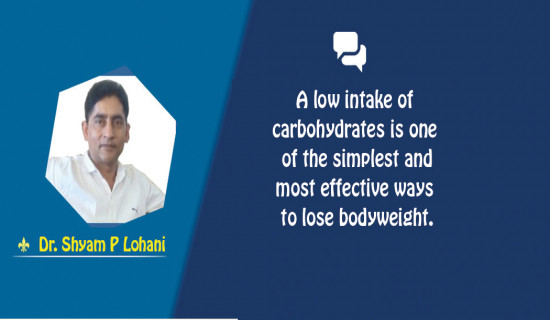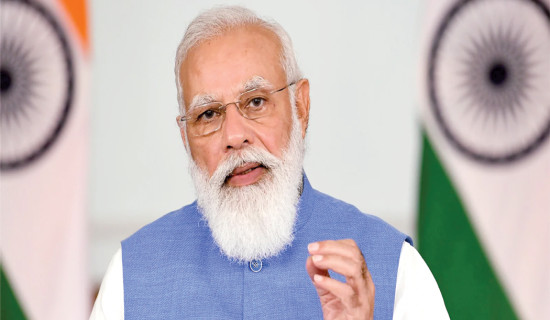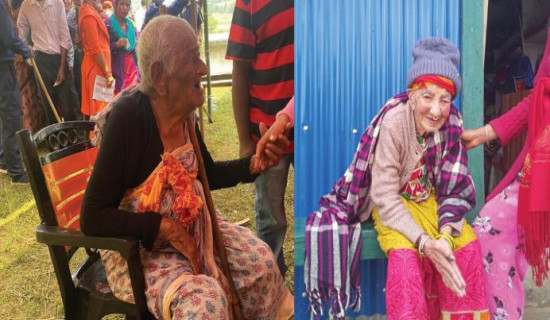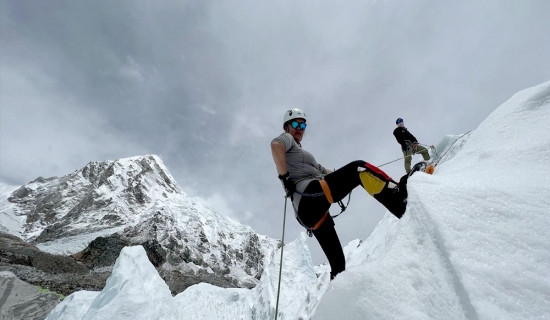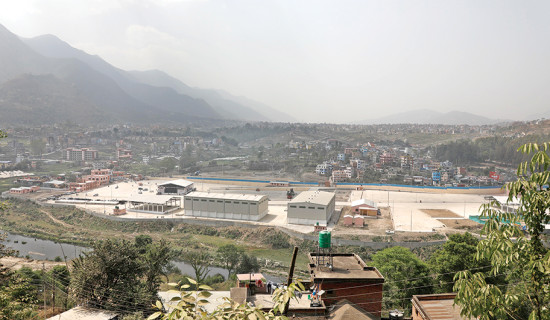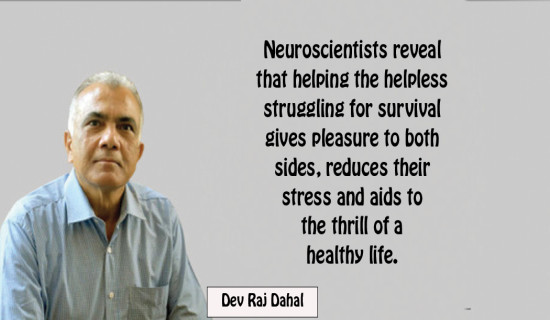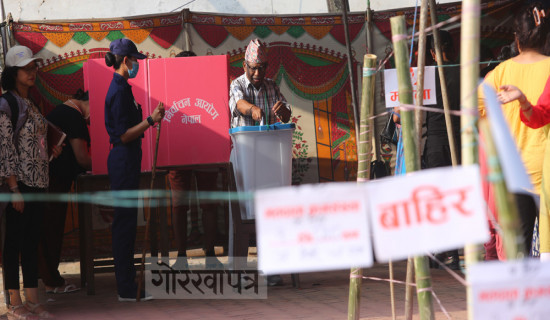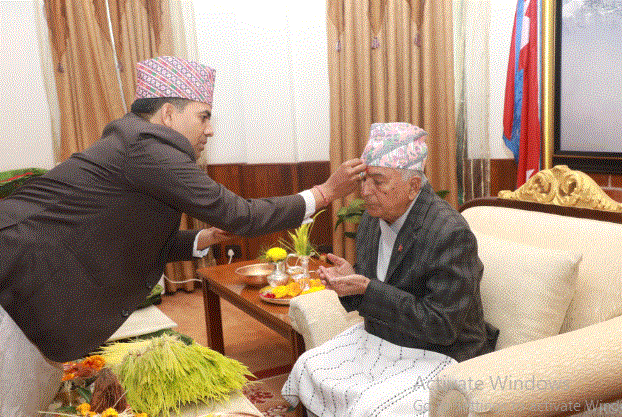- Thursday, 2 October 2025
Benefits Of Low Carbohydrate Diet
Dr. Shyam P LohaniCarbohydrates are one of three main food types that our body needs to function properly. The other food types include protein and fat. Carbohydrates give the body energy. Our body breaks carbohydrates to use immediately or store them for use later. As soon as we eat carbohydrates, our body converts them into energy and if they are not used immediately, it stores them in the muscles and liver to use later. However, our body converts stored carbs to fat if the body does not use it.The role of dietary carbohydrates in diabetes has been a subject of much debate for decades. The discussions are mainly focused on the ideal amounts and types of carbohydrates. Low carbohydrate diets, including low carbohydrate, high fat (LCHF) and ketogenic (keto) diets, have been gaining popularity among the general population. It is particularly beneficial for weight loss, but also in people with diabetes for managing blood glucose levels. However, there is confusion amongst both people with diabetes and health professionals about the suitability of these diets.Diet planMost people with Type 2 diabetes have a reduced ability to remove carbohydrates from their blood efficiently due to insulin resistance. In addition, they may have an impaired ability to transfer glucose into the blood. Type 1 diabetes was historically managed with low carbohydrate, low energy diets prior to the discovery of insulin. Insulin was very effective in controlling blood sugar and people with diabetes sifted themselves from diet and exercise. A dietary modification particularly amounts of carbohydrates in combination with regular exercise used to be the traditional recommendation for treating diabetes. Moreover, a low carbohydrate balanced diet has been shown to the reduction of carbohydrates with fairly equal proportions of daily energy intake coming from carbohydrates, protein, and fat.However, compliance with these lifestyle modifications is less than satisfactory. A high carbohydrate diet raises postprandial plasma glucose and insulin secretion, thereby increasing the risk of cardiovascular diseases, hypertension, dyslipidemia, obesity, and diabetes. Owing to the easy availability of fast foods, average sugar intake has increased and average fibre consumption has decreased. The shifts in food choices have paralleled the rise in Type 2 diabetes during the 20th century.A classic dietary pattern, popularly known as The Mediterranean-style diet has been associated with lower body weight, improved glycemic outcomes, and improved cardiovascular risk in people with Type 2 diabetes. The diet consists of high consumption of vegetables, monounsaturated fatty acids, especially olive oil, fruits, cereals, and legumes, low consumption of red or processed meat, and a low to moderate consumption of red wine during meals. Low-carb foods include lean meats, such as chicken breast, or pork, fish, eggs, leafy green vegetables, cauliflower and broccoli, nuts and seeds, including nut butter, oils, such as coconut oil, olive oil, and rapeseed oil, some fruits such as apples, blueberries, and strawberries and unsweetened dairy products, including plain whole milk and plain yogurt. Exercise is an important part of overall health and also for blood sugar control. People should escape from a sedentary lifestyle; however excessive exercise has harmful effects too. Adults are recommended for doing moderate exercise for 150 minutes a week (a minimum of 10 minutes at a time) for moderate health benefits. For optimal health benefits, 300 minutes of exercise per week is recommended (CDC, 2020). Short-term health risks caused by a low-carb diet may include cramping, constipation, palpitations, high cholesterol, headaches, brain fog, lack of energy, nausea, bad breath, rash, and reduced athletic performance. Similarly, long-term health risks caused by a low-carb diet may include nutritional deficiencies, loss of bone density, and gastrointestinal problems. There has been concern that high-fat, low carbohydrates diets raise cholesterol and cause heart disease due to their high-fat content. However, low-carbohydrate diets have been found to be healthy and beneficial to most of the people. Also, it has been shown that low-carb diet leads to the reduction in appetite and therefore, helps maintaining healthy weight. BenefitsStudies consistently show that when people decrease their carbohydrates and increase the intake of protein and fat and greatly reduce caloric intake. Thus, a low intake of carbohydrates is one of the simplest and most effective ways to lose bodyweight. Low-carb diets are very effective at reducing harmful abdominal fat as well. There have been pieces of evidence that reduction in carbohydrate intake dramatically reduces blood triglycerides. Therefore, it is a dramatic increase in good cholesterol levels on healthy, low-carb diets, while they tend to increase only moderately or even decline on low-fat diets. People with diabetes and insulin resistance may, therefore, get benefits from low-carb and ketogenic diets. Low-carb diets are an effective way to lower blood pressure; therefore, the risk of cardiovascular diseases decreases substantially and may help us live longer. People looking to lose weight or considering going on a low-carb diet should consult their healthcare providers, particularly dieticians before making any significant changes in their diet plan. People with diabetes who begin a low-CHO diet should seek support from a dietitian who can help create a culturally appropriate, enjoyable, and sustainable plan for a particular person. Available evidences suggest that the low or very low-CHO diet is a healthy eating pattern for individuals living with Type 1 and Type 2 diabetes for weight loss, improved glycemic control, and/or reducing the need for anti-diabetic medications.(Dr. Lohani is a clinical director at the Nepal Drug and Poison Information Centre. lohanis@gmail.com)
Evolving Digital Constitutionalism
Constitutionalism, as we understand today, refers to a concept that stipulates that politics should be governed by laws and regulations formulated as per the wishes of the sovereign. It stands for the supremacy of the law over politics and makes individuals adhere to the rules of the game irrespective of their position in society. These are normative principles, yet the fact is that norms do remain the same, but the situation changes for more than one reason. The most important reason, among others, is the changes that can be noticed in the political and legal economy. When the context changes, its content also alters for adaption and successful enforcement of the constitutional order.
Two-day weekly off begins
The two-day off a week (Saturday and Sunday) will begin as a trial from May 15, Sunday. Citing the excessive rise in the price of fossil fuel in the international markets and its impacts on foreign currency reserves, the government has decided to take two days off a week as an alternative to reduce fuel consumption. Apart from this, the Ministry of Culture, Tourism and Civil Aviation had been suggesting that if there was a two-day holiday in a week, domestic tourism would be promoted as well.
Less money spent in this local election
Candidates and political parties spent lesser amount of money for Friday’s local election than previous polls. Restrictions on over-spending and the type of promotional materials allowed to be used seemingly brought down the candidates’ expenditure this time around.
Modi’s trip expected to boost tourism
The visit of Indian Prime Minister Narendra Modi to Lumbini on Monday has excited tourism entrepreneurs in the area in hope that it will help in the promotion of tourism here. Tourism entrepreneurs have said that measures should be taken to extend the stay of Indian tourists as their tourists may increase after Modi’s visit. “Now we have to find a way to extend their stay,” said Chandra Prakash Shrestha, President of the Siddhartha Hotel Association.
Benzema draws level with Raúl
Karim Benzema continues to add his name to Real Madrid’s record books, scoring his 323rd goal on Thursday to draw level with Raúl González as the club’s second-highest scorer behind Cristiano Ronaldo. Benzema netted in the first half of the team’s 6-0 rout of last-place Levante in the Spanish league, with Madrid having secured the title a few rounds ago. The result sealed Levante’s relegation after five consecutive years in the first division. Vinícius Júnior, Benzema’s trusted attacking partner all season, scored a hat trick for Ma
Spurs keep top-four bid alive
Mikel Arteta launched a scathing attack on referee Paul Tierney after Tottenham beat 10-man Arsenal 3-0 on Thursday to keep alive their hopes of finishing in the Premier League’s top four. Antonio Conte’s side would have been eliminated from the race to qualify for next season’s Champions League if they had lost to their bitter north London rivals. But Harry Kane tormented Arsenal once again as the Tottenham striker opened the scoring with a controversial penalty. Crucially, Arsenal’s Rob Holding was sent off for two bookings in seven minutes.
113-year-old Gopi Maya, 111-year-old Bishnu Maya cast their votes
Gopimaya Pokharel, a 113-year-old woman of Bhanu Municipality-5, Tanahun, cast her vote from Mahadevata Basic School ‘Ka’ voting centre in the local poll on Friday Pokharel cast her vote with the help of her grandson, election officer Bishnu Prasad Neupane of the centre informed.
Lhakpa Sherpa first woman to scale Everest 10 times
By A Staff Reporter Kathmandu, May 14: Lhakpa Sherpa, 48, has become the first woman to climb Mount Everest 10 times. The Sankhuwasabha native who currently lives in Connecticut, USA, Sherpa reached the top of Mount Everest at around 6.30 am on Thursday, confirmed Seven Summit Treks Pvt. Ltd., the company that managed her expedition. Similarly, on Thursday, the world’s highest mountain saw 150 climbers reach the top. This high number has been attributed to clear weather.The Spring mountaineering season, which this year is expected to end at the end of May, is considered the best time to summit Everest. That is why climbers from all over the world come to Nepal to make an attempt on the 8,848.86-metre-tall mountain. This year, a total of 317 climbers from 58 countries have received permission from the Department of Tourism to attempt to scale Mount Everest.Meanwhile, Yuvantika Tamang of Suryodaya Municipality-10, Ilam has also successfully climbed Mount Everest. According to our Pashupatinagar correspondent, Tamang reached the top of the mountain at 6.50 am on Friday after which, she unfurled Nepal’s national flag there. Born in Suryodaya, Yuvantika is involved in agriculture.
Ten cargos enter Chobhar Dry Port in a month
Ten cargo containers have entered the newly built Chobhar Dry Port in Kritipur after its inauguration by Prime Minister Sher Bahdur Deuba on April 5. The dry port has allowed importers to make customs clearance of their goods in Kathmandu itself, saving their trips to the various border checkpoints from where shipments enter Nepal. Dhan Bahadur Baruwal, custom chief of Chobhar Dry Port, said that cargo containers were not entering daily because it came into operation only recently.
Social Capital Fosters Solidarity
Modern society has three key players-- the state, the market and citizens-- with all their informal and formal institutions, networks and movements known as the civil society. The diffusion of power away from the state has innovated paired norms, values and interests of these players to breed social capital, resolve distributional conflicts and alleviate the rising scarcity of public goods in society. The state assumes legitimate power monopoly to subdue chaos, create security and order and govern society. The market hinges on competition aiming to spur production, exchange and allocation of various goods. Civil society grows on the spirits of mediation, voluntarism, charity and giving.
Advance Community-Led HIV Response
For decades, community engagement has been critical to HIV prevention in terms of understanding the context of the epidemic, addressing community needs, reducing health disparities, and achieving health equity. Therefore, governments and development partners are increasingly focusing on meaningful community engagement to protect and promote the rights of key populations and people living with HIV who are poor and socially marginalised with limited access to health care services. There are increasing evidences that community-led responses to HIV result in positive health outcomes and enhance community resilience. Considering the emerging trends of key populations-led HIV response, meaningful and inclusive participation of civil society is critical to connect the marginalised communities with services and ensure that no one is left behind.
Nation Goes To Polls Today, Strengthening Democracy At Grassroots
The nation goes to local polls today, the second time since the country adopted the federal democratic constitution in September 2015. Our charter envisages periodic local polls every five years. This time, too, polls at 753 local bodies, revered as the very basis of our federal system of governance, have shone a light on our contemporary governing system that prides itself on devolution of power to the grassroots. Our local bodies enjoy over 250 rights, thanks to the legislation, arranged by the people's representatives through constituent assemblies.
Menstruation Troubles For Female Teachers
Teaching is a platform where teachers impart knowledge to students. The more knowledge they share the more the student learns. However, sometimes problems pose dilemmas for teachers in teaching. When a teacher happens to be a female, she encounters a special problem - the menstrual cycle during teachings. The menstruation period is not only about a situation of facing bleeding problems but there happened to be both physical and psychological disorders among females which can be perceived mainly in the form of pre-menstrual syndromes such as painful cramps that cause troubles in the teaching and learning process.
Himalayan Bird Count on May 14
By A Staff Reporter Kathmandu, May 13: Birdwatchers in the Himalayan regions of Nepal, India and Bhutan will come together to document as many birds in the mountain range as possible on May 14.This is the first edition of the Himalayan Bird Count (HBC) which aims to celebrate the incredible bird diversity and bring attention to the threatened habitats of the Himalayas.In the event organised by Bird Conservation Nepal (BCN), Bird Count India and the Royal Society for the Protection of Nature, Bhutan, are working together to bring the Himalayan birding fraternity together for the common good. The organisations have collectively decided to conduct this event on Endemic Bird Day to spread awareness about Himalaya’s bird biodiversity, said a press statement issued by the BCN.“The rich and diverse biodiversity of the Himalayan region is home to several species of birds. We are hopeful that the “Himalayan Bird Count”, initiated by three countries, is one of the many events for the birds and biodiversity conservation of the Himalayan region,” said Ishana Thapa, Chief Executive Officer of the BCN. “Himalayan Bird Count can provide consistent, snapshot information of bird diversity in a region that is increasingly threatened by climate change. This kind of information, across the years, can help us understand what is happening to our country’s birds,” said Dr. Ghazala Shahabuddin, Senior Fellow, Centre for Ecology, Development and Research (CEDAR) working in Kumaon Hills, Uttarakhand. The biological diversity of the Himalayas is also under unprecedented threat due to large-scale infrastructure development, the statement reads.The basic activity is to view and count birds from anywhere in the listed Himalayan region on Saturday for at least 15 minutes and upload bird lists to the bird recording platform eBird (www.ebird.org). The day is also going to be celebrated as World Migratory Bird Day 2022.


